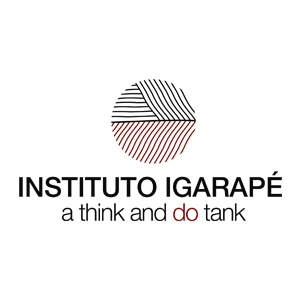Leveraging synergies: How BRICS can drive biodiversity and climate solutions
The Igarapé Institute´s newest report unveils BRICS’s potential to play a key role in reforming global governance and addressing the Triple Planetary Crisis.
BRICS should deepen cooperation, leveraging existing innovations in areas like renewable energy and biodiversity conservation.
The New Development Bank (NDB) should be further empowered to finance ecological transitions in the Global South.
Rio de Janeiro, January 16, 2025 – The BRICS group includes some of the most biodiverse countries in the world while also being among the largest greenhouse gas emitters. Additionally, they rank among the major global producers and consumers of energy. The eleven countries making up the expanded BRICS account for over 30% of GDP and 40% of global goods trade. Collectively, it has allocated $2.4 million to climate initiatives since 2015 via the New Development Bank (NDB), making it the largest multilateral provider of climate financing to national development banks. Ultimately, it is a pivotal coalition in addressing global challenges related to biodiversity conservation and decarbonization.
The latest report from the Global Futures Bulletin series – “The BRICS and the Decarbonization and Biodiversity Protection Challenges” – explores the current global position of BRICS as a bloc and the opportunity to raise its ambitions and champion a more robust decarbonization and biodiversity protection within the group. The report finds that the BRICS is not just fostering sustainable development and environmental governance, but is also home to vast ecosystems and abundant critical natural resources and is well positioned to drive global efforts for biodiversity conservation and climate justice.
BRICS members face multiple threats to their ecosystems, from deforestation to pollution. Home to approximately 47% of the global population, BRICS includes China, India, Russia, Indonesia, Brazil and Iran – which are among the top 10 global carbon emitters. The report describes how BRICS members collectively produce over 40% of global crude oil and consumes 35% of global petroleum imports.
Yet several BRICS countries are also leading the way in the green energy transition. For example, Brazil and Ethiopia have clean energy matrices, with 91% and 99% of their energy generated from renewable sources, respectively. BRICS play a dual role as both energy powerhouses and critical players when it comes to the energy transition. The report emphasizes the potential for BRICS members to innovate in areas such as carbon markets and sustainable agriculture.
“BRICS members represent diverse geographies, economies, and ecosystems, making their collaboration essential in achieving equitable and sustainable environmental outcomes. Despite internal differences, BRICS countries have adopted common positions on issues such as climate financing and technology transfer”, said Laura Trajber Waisbich, Deputy Program Director at Igarapé Institute.
As the BRICS alliance expands, its influence in global environmental governance continues to grow. The group and its members are increasingly aligning its priorities with major international frameworks such as the Convention on Biological Diversity (1992) and the Paris Agreement (2015). The BRICS strategic positioning as a coalition of the Global South facilitates its ability to advocate for equitable solutions that address the disproportionate impacts of climate change and biodiversity loss on developing nations. “As the world contends with escalating environmental crises, the group’s ability to connect biodiversity protection with socio-economic development offers a transformative pathway for the Global South”, Waisbich added.
The BRICS will host several key environmental dialogues in the coming years, including contributions to the COP30 agenda in Brazil in 2025. Brazil also holds the BRICS presidency this year and may well amplify the group’s focus on biodiversity protection and sustainable development. Brazil’s leadership role also offers a unique opportunity to shape the bloc’s agenda and reinforce commitments to multilateralism more generally.
“BRICS countries have made progress on decarbonization and biodiversity, but face challenges in turning commitments into actions due to diverse economic and environmental contexts. To overcome this, BRICS as a group should deepen cooperation, leveraging existing innovations in areas like renewable energy and biodiversity conservation. The New Development Bank (NDB) should be further empowered to finance ecological transitions in the Global South. Additionally, improving policy coherence and recognizing the interconnectedness of decarbonization and biodiversity is crucial. By enhancing synergy in global initiatives, BRICS can play a key role in reforming global governance and addressing the Triple Planetary Crisis”, Waisbich concluded.
More information: raphael.lima@igarape.org.br (+55 21 965559019) / press@igarape.org.br
About the Igarapé Institute
Igarapé Institute is an independent think-and-do tank that conducts research, develops solutions, and establishes partnerships with the aim of influencing both public and corporate policies and practices in overcoming major global challenges. Our mission is to contribute to public, digital, and climate security in Brazil and worldwide. Igarapé is a non-profit and non-partisan institution, based in Rio de Janeiro, operating from the local to the global level.



